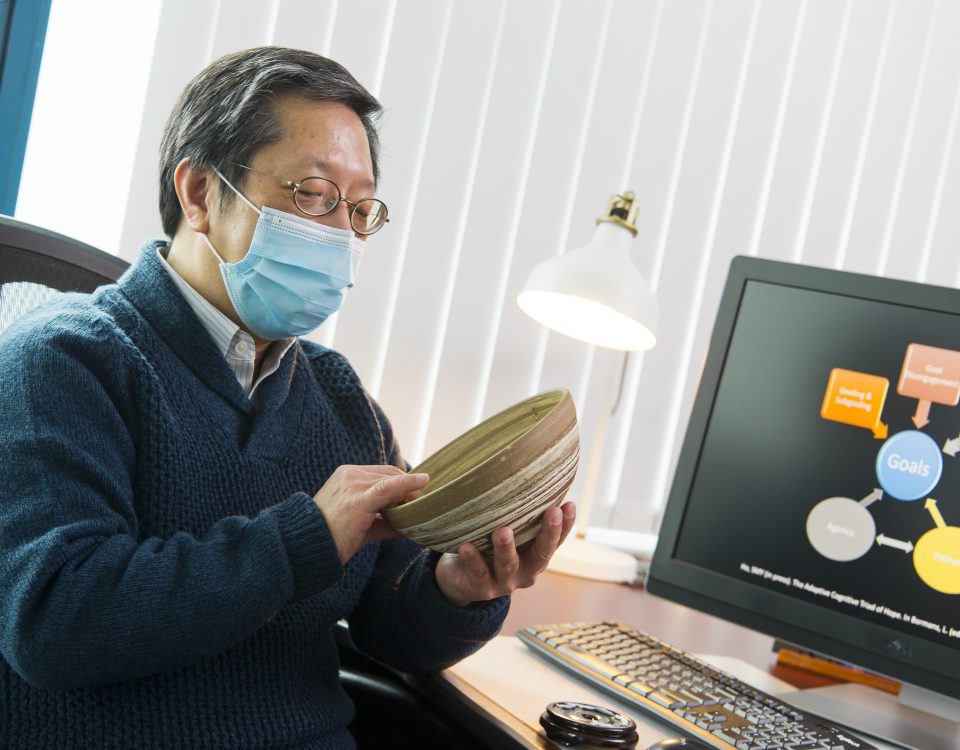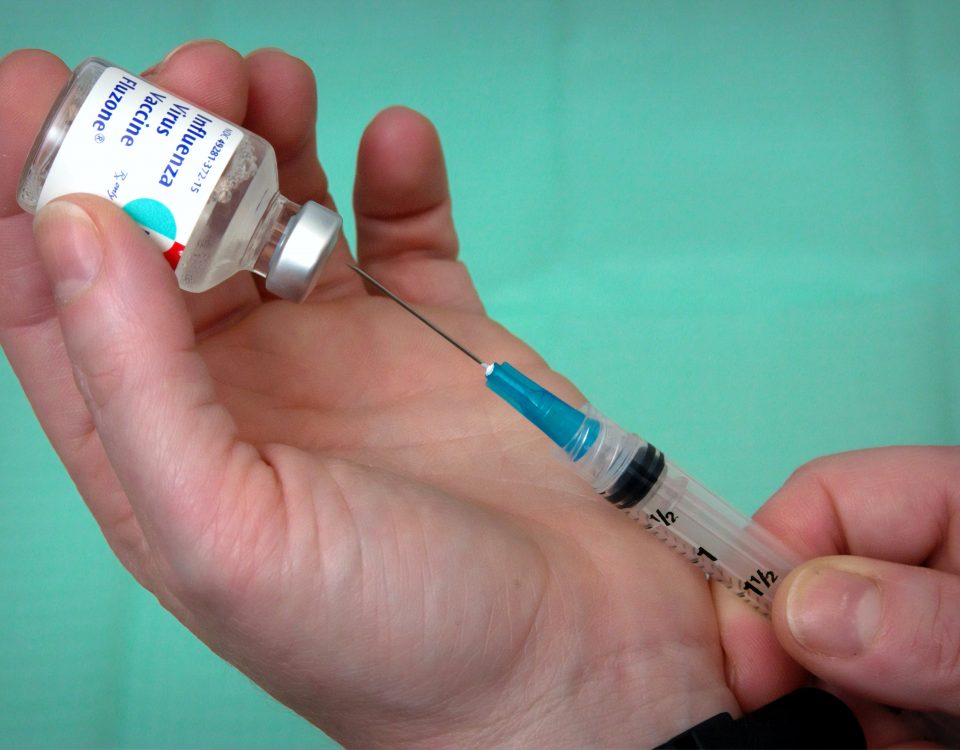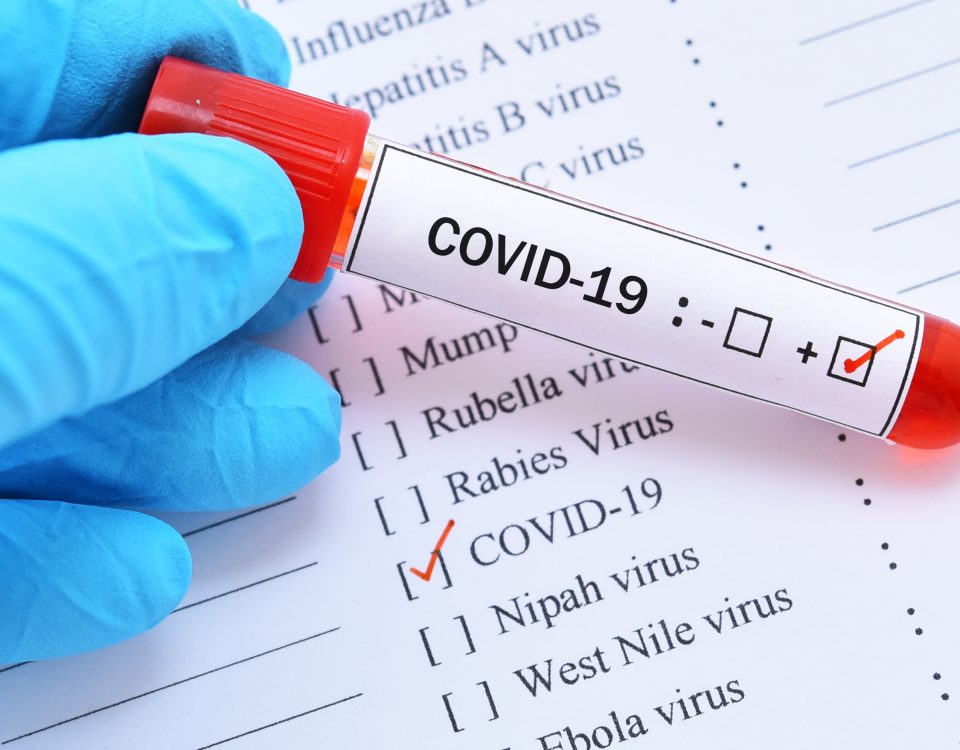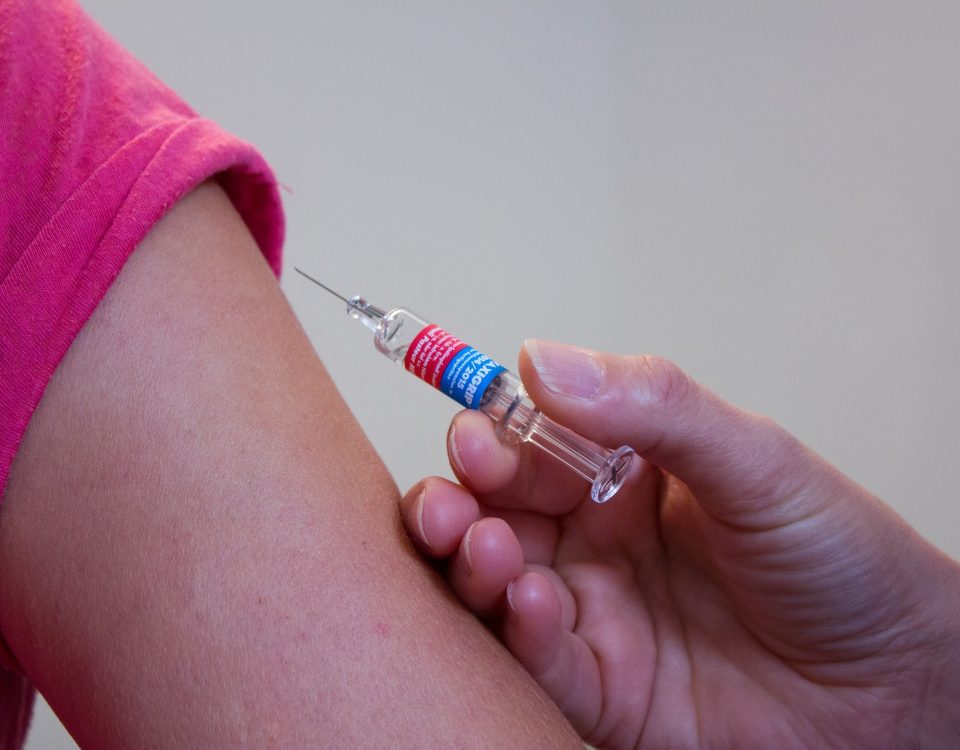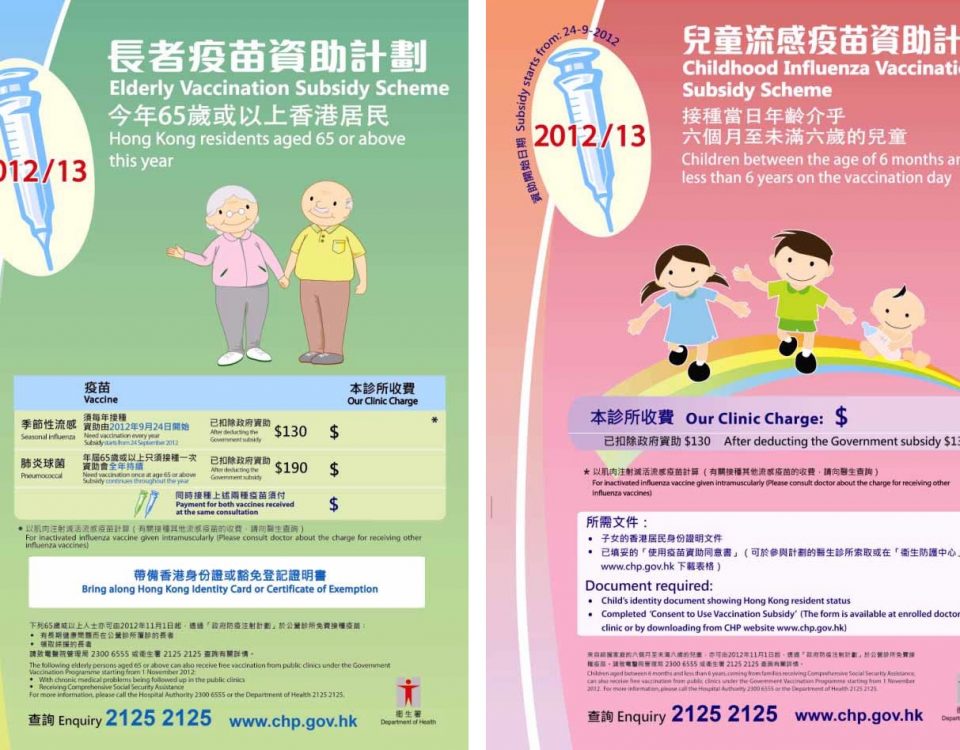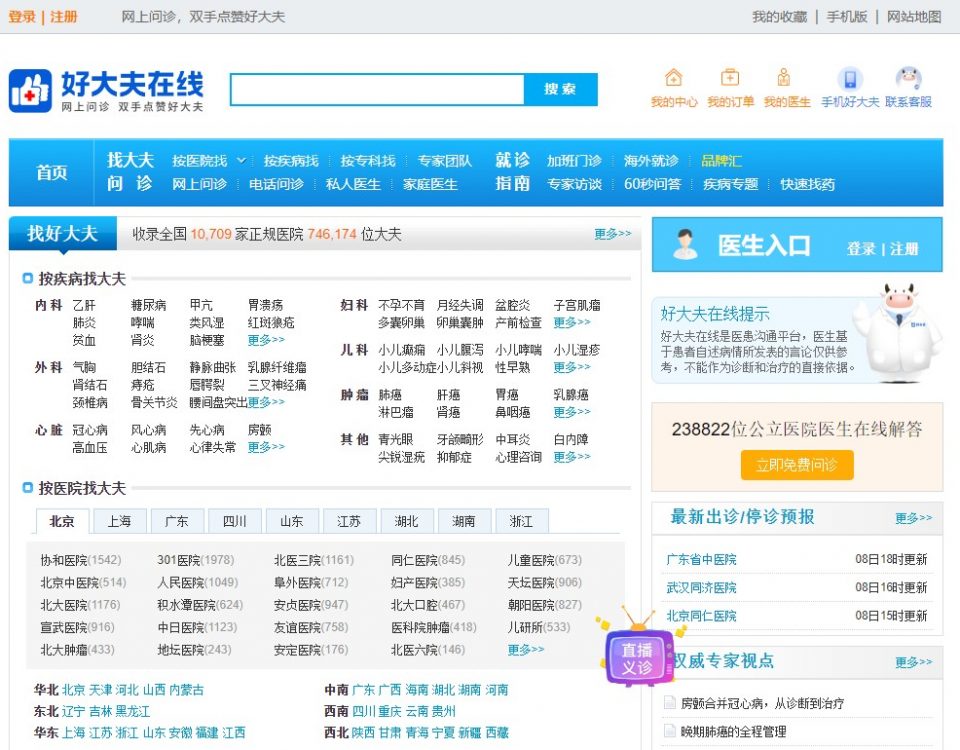- Filter by
- Categories
- Tags
- Authors
- Show all
- All
- Digital Society
- GSC - Digital Society
- GSC - One Health
- GSC - Smart City
- Impact
- Insights
- One Health
- Smart City
- Video
- All
- 5G
- Adaptive communication
- Adolescent suicide
- Ageing population
- Aggressive Behaviour
- AI
- Animal Cruelty
- Antisocial Behaviour
- Artificial Intelligence
- Asian Studies
- beauty
- Belt and Road
- Big Data
- Brain
- Caretaker
- chatbot
- Children Development
- China
- Chinese and History
- Chinese economy
- Chinese history
- Chinese labourers
- Chinese Medicine
- Circular Economy
- City Literature
- Climate Change
- Clinical Handover
- Co-sponsored by Digital Society
- comics
- Communications
- Community Impact
- conservation
- Coronavirus
- counselling
- COVID-19
- creative literacy activities
- Criminal Profiling
- Criminology
- Cross-modal Analysis
- Cultural Diversity
- Cyber Vigilantism
- Cyberbullying
- Cybersecurity
- dialogic reading
- Digital divide
- Digital Humanities
- Digital media
- Digital Society
- Disabled
- diseasescape
- Domestic worker
- Education
- EEG
- eHealth
- elderly services
- EMI
- Emotional Labour
- English Language
- ethnic minority
- European Union
- eye tracker
- Fake news
- Family Problems
- Female Leaders
- Food Politics
- Gender Inequality
- gender studies
- Ghost Bride
- Global Network
- Gratitude
- Health Communication
- healthy ageing
- Heritage
- HMRF
- homeless
- Hong Kong
- Housing Issue
- humanities
- Impact Cases
- influenza
- International Student
- International Studies
- iot
- language education
- Language input
- Legal Communication
- Legal English
- Linguistics
- Linguistics and Translation
- Literature
- Long-distance Relationship
- Malaysia
- Media
- Media and Communication
- Media and Communications
- medical education research
- Mental Health
- Mental Well-being
- Misinformation
- Myanmar
- New Media
- Nuclear energy
- One Belt One Road
- One Health
- One Tambon One Product
- Online Comments
- Open Access
- Open Science
- Overseas Chinese
- Pandemic fatigue
- Parent-child
- Pedagogy
- Philippines
- Political Participation
- Political Unfriending
- positive education
- Positive Psychology
- PPR
- Psychology
- Public administration
- public and international affairs
- Public health
- Public Health Risk
- Public Opinion
- Public policy
- Publishing
- Quarantine
- Racial Discrimination
- Research Grant
- Research Workshops
- Romance
- Satisfaction Mirror
- Science
- SEN
- Sexual abuse
- Shanghai
- Smart City
- social and behavioural sciences
- Social capital
- Social entrepreneurship
- Social Media
- Social Problems
- social sciences
- social work
- Spatial Inequality
- SPPR
- STEM
- storytelling
- Sustainability
- technology
- Trilingual
- Tung Wah Group of Hospitals
- Typhoon Signal
- Urban Development
- Urban Planning
- Urbanisation
- Vaccination
- Victim-offender overlap
- video
- Vietnam
- Wildlife Trading
- Writing Competition
- Youth Problems
2 November 2019
Published by Carrie LUI at 2 November 2019
Categories
 香港城市大學社會及行為科學系副教授郭黎玉晶推動的「正向教育校本計劃」計劃,能減低小學生的焦慮和負面情緒,並提升學習動機。
香港城市大學社會及行為科學系副教授郭黎玉晶推動的「正向教育校本計劃」計劃,能減低小學生的焦慮和負面情緒,並提升學習動機。Do you like it?
3 March 2020
Published by Carrie LUI at 3 March 2020
Categories
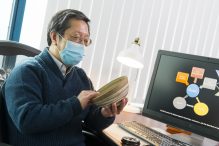 香港城市大學人文社會科學院行為科學系教授何敏賢提供建議,幫助大眾應付因疫情及逆境而造成的焦慮情緒。
香港城市大學人文社會科學院行為科學系教授何敏賢提供建議,幫助大眾應付因疫情及逆境而造成的焦慮情緒。Do you like it?
20 March 2020
Published by Carrie LUI at 20 March 2020
Categories
 In the programme, Dr Nicholas Thomas, Associate Professor from City University’s Department of Public and International Affairs, talked about how different countries in Asia and Europe are handling the COVID-19 situation.
In the programme, Dr Nicholas Thomas, Associate Professor from City University’s Department of Public and International Affairs, talked about how different countries in Asia and Europe are handling the COVID-19 situation.Do you like it?
7 May 2020
Published by Carrie LUI at 7 May 2020
Categories
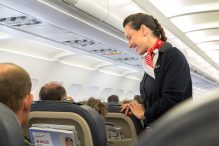 香港城市大學人文社會科學院公共及國際事務學系助理教授謝智偉博士,介紹「情緒勞動」的定義,以及勞資雙方應如何聯手減少因情緒勞動所引起的負面影響。
香港城市大學人文社會科學院公共及國際事務學系助理教授謝智偉博士,介紹「情緒勞動」的定義,以及勞資雙方應如何聯手減少因情緒勞動所引起的負面影響。Do you like it?
21 September 2020
Published by Carrie LUI at 21 September 2020
Categories
 This study will investigate the effectiveness of an intervention enhancing TCM practitioners' communication skills. The proposed intervention is expected to improve patient-centred communication and proficiency and to result in better care through the integration of patient’s Western medical history.
This study will investigate the effectiveness of an intervention enhancing TCM practitioners' communication skills. The proposed intervention is expected to improve patient-centred communication and proficiency and to result in better care through the integration of patient’s Western medical history.Do you like it?
21 September 2020
Published by Carrie LUI at 21 September 2020
Categories
 Despite its effectiveness in prevention, the influenza vaccination coverage in Hong Kong has remained lower than the 30% threshold proportion required for building up basic herd immunity. This project tries to introduce narrative persuasion as an effective tool for promoting influenza vaccine uptakes in Hong Kong.
Despite its effectiveness in prevention, the influenza vaccination coverage in Hong Kong has remained lower than the 30% threshold proportion required for building up basic herd immunity. This project tries to introduce narrative persuasion as an effective tool for promoting influenza vaccine uptakes in Hong Kong.Do you like it?
21 September 2020
Published by Carrie LUI at 21 September 2020
Categories
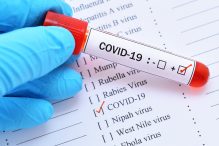 Knowledge on the epidemiological features and transmission patterns of COVID-19 is accumulating. Detailed line-list data with household settings can advance the understanding of COVID-19 transmission dynamics.
Knowledge on the epidemiological features and transmission patterns of COVID-19 is accumulating. Detailed line-list data with household settings can advance the understanding of COVID-19 transmission dynamics.Do you like it?
21 September 2020
Published by Carrie LUI at 21 September 2020
Categories
 Drawing on knowledge of both Chinese politics and health security, this article analyzes how Chinese actors have responded to the threat in the public and animal health sectors as well as the domestic and international implications of these responses.
Drawing on knowledge of both Chinese politics and health security, this article analyzes how Chinese actors have responded to the threat in the public and animal health sectors as well as the domestic and international implications of these responses. Do you like it?
21 September 2020
Published by Carrie LUI at 21 September 2020
Categories
 This study examined masculinity as a predictor of engagement in health behaviour, and explores the mediating effect of age and social support on the relationship between conformity to masculine norms and health behaviour.
This study examined masculinity as a predictor of engagement in health behaviour, and explores the mediating effect of age and social support on the relationship between conformity to masculine norms and health behaviour.Do you like it?
21 September 2020
Published by Carrie LUI at 21 September 2020
Categories
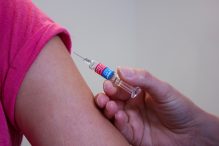 This study examined the effects of the counter-rumor on changes in belief about the anti-vaccination claim, anxiety associated with the rumor, intentions to vaccinate a child and share the rumor.
This study examined the effects of the counter-rumor on changes in belief about the anti-vaccination claim, anxiety associated with the rumor, intentions to vaccinate a child and share the rumor.Do you like it?
28 September 2020
Published by Carrie LUI at 28 September 2020
Categories
 Principal investigator: Dr John LEE Sie-yuen (Department of Linguistics and Translation) Grant type: Health and Medical Research Fund (HMRF)
Principal investigator: Dr John LEE Sie-yuen (Department of Linguistics and Translation) Grant type: Health and Medical Research Fund (HMRF) Do you like it?
28 September 2020
Published by Carrie LUI at 28 September 2020
Categories
 Principal investigator: Dr Jack PUN (EN) Grant type: Health and Medical Research Fund (HMRF)
Principal investigator: Dr Jack PUN (EN) Grant type: Health and Medical Research Fund (HMRF)Do you like it?
7 October 2020
Published by Carrie LUI at 7 October 2020
Categories
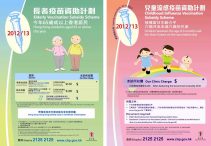 本文通過對2010年-2013年的香港流感公益廣告進行內容分析,來研究評估其宣傳效果。研究發現大部分的流感廣告從健康傳播的角度存在策略性的不足。
本文通過對2010年-2013年的香港流感公益廣告進行內容分析,來研究評估其宣傳效果。研究發現大部分的流感廣告從健康傳播的角度存在策略性的不足。Do you like it?
7 October 2020
Published by Carrie LUI at 7 October 2020
Categories
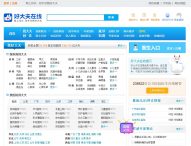 Drawing on the expectancy violation theory, this study investigates how patients’ expectation affects their trust with the doctor and their satisfaction with the mediated patient-doctor interaction.
Drawing on the expectancy violation theory, this study investigates how patients’ expectation affects their trust with the doctor and their satisfaction with the mediated patient-doctor interaction.Do you like it?
7 October 2020
Published by Carrie LUI at 7 October 2020
Categories
 本文從流行病傳播動力學的角度,探討媒體在應對突發公共衛生事件中的干預作用,認為在應對以突發公共衛生事件為代表的社會危機時,媒體需要在科學的指導下開展工作,才能精准地發揮公共影響力,產生正面的干預效果。
本文從流行病傳播動力學的角度,探討媒體在應對突發公共衛生事件中的干預作用,認為在應對以突發公共衛生事件為代表的社會危機時,媒體需要在科學的指導下開展工作,才能精准地發揮公共影響力,產生正面的干預效果。Do you like it?
4 November 2020
Published by Georgina Yeung at 4 November 2020
Categories
Format Zoom Speakers Dr Nick OR, Dr Nick PETROVSKY, Professor Richard WALKER Abstract Over the last few months, we surveyed the Hong Kong general public on three separate occasions about their reactions to tools to fight the Covid-19 pandemic. These tools included: – different graphical ways to present information; – different versions of a hypothetical but realistically presented contact tracing app. We will explain how we did our research and implications of our findings for public service delivery, including which ways of presenting disease patterns and designing a contact tracing app increase citizen acceptance. Event details Please refer to the event poster. Register Click here (please register by 11:30 on 16 November, one hour before the talk)
Do you like it?
4 November 2020
Published by Georgina Yeung at 4 November 2020
Categories
Format Zoom Speakers Dr HUANG Guanxiong Using Messaging Strategy to Reduce Optimistic Bias in Health and Risk Communication Optimistic bias is individuals’ cognitive tendency of perceiving the risks to a hazardous event or disease for themselves lower than for others. Put it simply, “It is a serious issue, but it is someone else’s issue.” Optimistic bias has been observed with various health and risk issues, such as H1N1 flu and climate change, and may have a negative impact on people’s willingness to take preventive measures. I will present my research on message design strategy that can effectively reduce optimistic bias and in turn persuade people to take action against the hazardous event or disease. Dr KIM Ji Won From Risk Butterflies to Citizens Engaged in Risk Prevention in the Zika Virus Crisis Social media have become an important venue for communicating information about health risks during public health crises. Despite that individuals not only receive risk information but also actively share it within their social networks, little is known about how the bidirectional use of social media would influence their risk perceptions and subsequent health behaviors. Hence, in this talk, I will present a study which examines how two-way social media communication (i.e., posting and receiving risk information on social media) are linked to different levels of risk perceptions, and in turn, this leads to information seeking and preventive behaviors. Implications of the findings will also be discussed in light of communication strategies that motivate users to share accurate risk information during the pandemic. Dr DAI Yue Observing Interactions in Online Mental Health Support Groups: A Masspersonal Perspective to Social Support Common mental disorders are a pressing global public health issue. Although prior research has revealed invaluable insights on the benefits of online health support groups, it focused more on active posters in these groups while neglecting the lurkers. This seminar presents two studies on how observers of interactions in online support communities relate to the interactants in the conversations and experience the interactions vicariously. The results shed light on passive use of online support groups and guide the design of online support communities. Event details Please refer to the event poster Register Click here (after registering, you will receive a confirmation email containing information about joining the meeting) Enquiries OH.seminar@cityu.edu.hk
Do you like it?
4 November 2020
Published by Georgina Yeung at 4 November 2020
Categories
Overview Of all infectious disease outbreaks in recent times, none have had such an impact on Hong Kong as COVID-19. Secondary school students have been uniquely affected by the outbreak. Not only have their current studies been significantly disrupted but their future plans have been challenged by the disease. The question is how? To answer this question, we would like to invite secondary school students to submit short essays for a winter writing competition on COVID-19. These essays will directly address the challenges facing students today and in the future. With this in mind, there will be two topics for the essays: (1) Oral History: What has been the impact of COVID-19 on your life in Hong Kong? For this topic, we would encourage authors to talk with their families, their friends as well as members of the local community. Identify common themes and topics and write an essay using the oral comments from those you have spoken with. (2) Back to the Future: What was the impact of COVID-19 on life in Hong Kong? Go fifty years into the future. Look back on your own experiences and on how the disease shaped Hong Kong’s future direction. Be as creative as you want. You could write from your own perspective – such as a diary entry or a letter – or tell a fictional story. Up to you. Just remember to place the impact of the virus at the centre of your story. Categories for Submission Two Topics : (1) Oral History (2) Back to the Future Two Streams: DSE or Open i. Junior (S1-3) ii. Senior (S4 or above) Prizes Winners in each category/stream will receive: First: HK$1,000 book coupons Second: HK$500 book coupons Event Details Please refer to the event poster. Instructions for Submission Please read the instructions for submission, and submit your work to COVID19.competition@cityu.edu.hk. Closing Date 22 February 2021, Monday, 5pm
Do you like it?
25 November 2020
Published by Carrie LUI at 25 November 2020
Categories
 Omega-3 supplementation may help reduce childhood antisocial and aggressive behaviour in females, and in children with high psychopathic-like personality, in an East Asian population, a study conducted by Dr Annis FUNG Lai-chu suggested.
Omega-3 supplementation may help reduce childhood antisocial and aggressive behaviour in females, and in children with high psychopathic-like personality, in an East Asian population, a study conducted by Dr Annis FUNG Lai-chu suggested.Do you like it?
1 December 2020
Published by Georgina Yeung at 1 December 2020
Categories
Format Zoom Speakers Dr Nick OR A Tale of Two City-states: A Comparison of the State-led vs Civil Society-led Responses to COVID-19 in Singapore and Hong Kong This paper compares the early pandemic response in Singapore and Hong Kong, two Asian city-states of similar sizes with a shared history of SARS, and advanced medical systems. Although both were able to contain the disease, they did so using two very di erent approaches. Using data from cross-national surveys, news, and mobility data, we demonstrate that, in protest-ridden Hong Kong, low governmental trust bolstered civil society, which focused on self-mobilization and community mutual-help. In Singapore, a state-led response model that marginalized civil society brought early success but failed to stem an outbreak among its egregated migrant population. The study sheds light on the roles of state and non-state actors in a crisis. Prof Mark R THOMPSON Popularity without Performance: The Philippine Government Response to the COVID-19 Pandemic Philippine President Rodrigo R. Duterte’s response to the COVID-19 virus has been in line with his ‘macho populism’ similar to Donald Trump’s in the US and Jair Bolsonaro’s in Brazil. Like these illiberal leaders, a lockdown of Metro Manila and most of the rest of the Philippines since mid-March was implemented only after Duterte’s initial denialism, in the face of the growing threat from the rapidly spreading virus. Once Duterte did
nally act, it was in a haphazard (particularly in terms of the lack of adequate testing and contract tracing) and highly militarised fashion Yet recent opinion polls show Duterte’s popularity has actually increased despite the country’s poor performance during the pandemic (the highest caseload in Southeast Asia as of this writing). This paper analyzes Duterte’s political ‘success’ despite governance failures during the pandemic in ideational (populist appeals), institutional (the lack of accountability in the country’s ‘hyperpresidentialist’ system), and structural terms (the weakness of a socially oriented political alternative despite the country’s extreme levels of inequality). Dr Nicholas THOMAS Anti-Microbial Resistance in China Since the turn of the century, China has been a major source of infectious disease outbreaks (SARS, H5N1, H7N9, COVID-19). It is also the source of the MCR-1 gene that confers resistance to colistin, a ‘last line’ antibiotic that can be deployed against multidrug resistant infections. With the largest population of any country combined with its status as a major supplier of produce, evaluating the emergence of AMR in China and Chinese responses to the threat is critical to understanding the global response. This paper starts by reviewing how Chinese authorities have framed the issue. The analysis focuses on antibiotic usage in both humans and the agricultural sector. Finally, the domestic and international implications of China’s responses are considered. Based on interviews with key Chinese and international o
cials, scientists, and public health specialists as well as farmers and consumers, we present data that argues the securitization of AMR in China is currently more concerned with policy and resource competition than with addressing an existential threat. Event details Please refer to the event poster Register Click here (after registering, you will receive a confirmation email containing information about joining the meeting) Enquiries OH.seminar@cityu.edu.hk
Do you like it?


